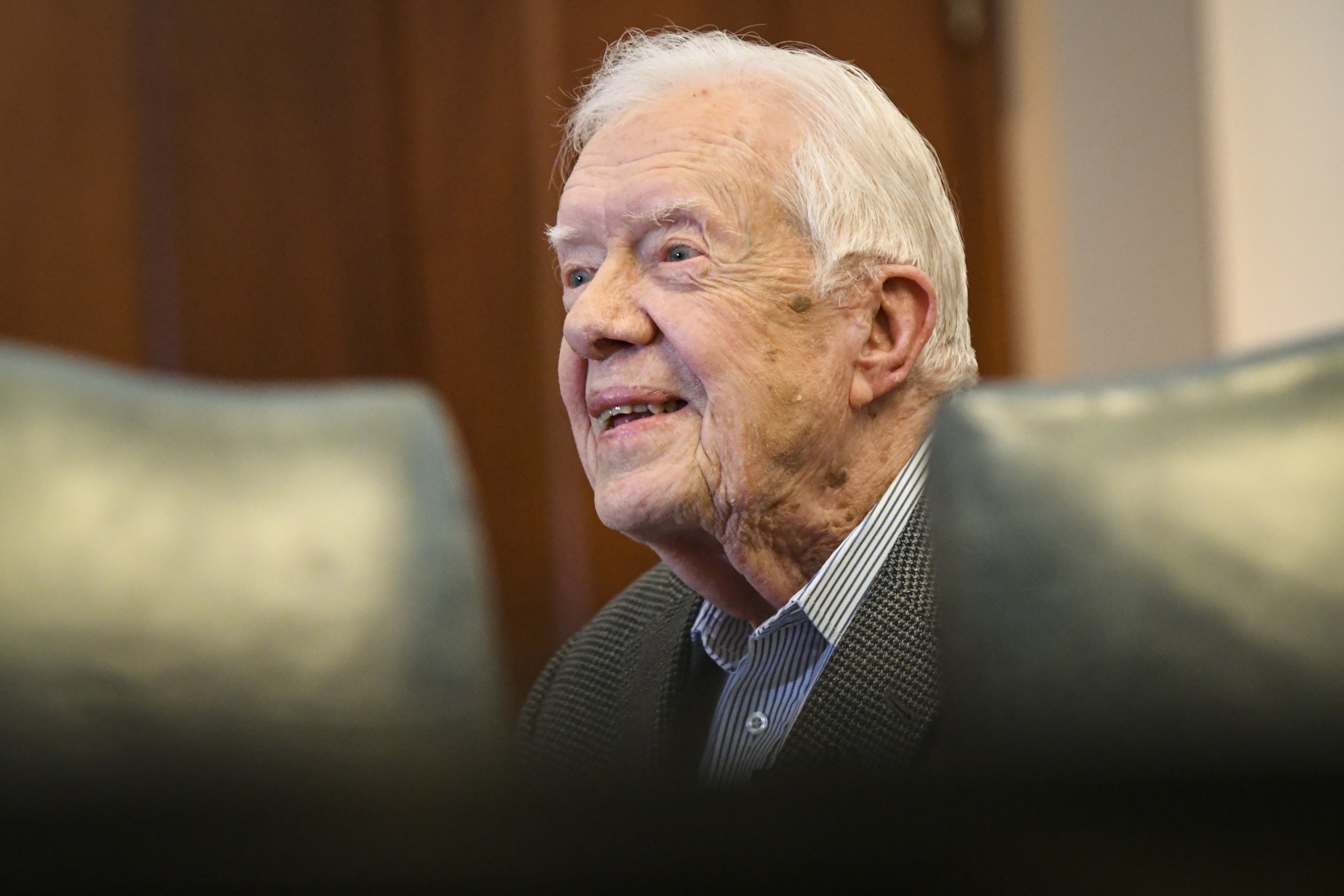Jimmy Carter plays key role in bringing medical clinic to his hometown

Former President Jimmy Carter’s efforts have helped lead Mercer University School of Medicine to open a primary clinic in Plains, Georgia, next month.
John Amis / Associated Press file
The small South Georgia town of Plains currently has no practicing physician.
But that’s about to change, thanks in part to advocacy from the town’s most famous resident.
Former President Jimmy Carter’s efforts have helped lead Mercer University School of Medicine to open a primary clinic in the town next month, said the dean of the school, Dr. Jean Sumner.
Carter, 93, was born in Plains and resides there. As governor of Georgia and later as president, he brought worldwide attention to the small community in the heart of farm country.
Sumner said that Carter, a Mercer trustee, called the university’s president and talked about the need for health care in the town. Carter “was very involved,’’ Sumner said. “He opened the door.”
Carter and his wife, Rosalynn, recently met with representatives of Mercer and of the Waycross-based Global Partnership for Telehealth, which will supply telehealth services at the clinic.
The new clinic will have a physician and a nurse practitioner, and will help train Mercer medical students.
“Mercer is committed to rural health,’’ Sumner said Wednesday. Southwest and southeast Georgia have few health care resources, she added.
The Plains clinic, which is to be housed in a refurbished building, will be the medical school’s first rural primary care clinic.
Health care in rural Georgia faces formidable challenges.
Six rural hospitals have closed in Georgia since the beginning of 2013, though two of them have reopened as downsized facilities. In addition, six of the state’s 159 counties have no physician, 63 counties are without a pediatrician, 66 without a general surgeon, and 79 without an OB-GYN.
The medical provider shortage is expected to deepen, said a report from the House Rural Development Council, whose recommendations led to legislation that passed the Georgia General Assembly earlier this year. (Here’s a GHN article on the legislation.)
The economic trends besetting rural Georgia have a long history, and in some ways Plains reflects those trends. The town was relatively prosperous in the 1920s and even had a small hospital. Carter was born there in 1924, making him the first U.S. president born in a hospital. (During much of the nation’s history, even wealthy people were born at home.) The former hospital is now a nursing home named for Carter’s late mother, Lillian Carter.
Sumner said a main goal of Mercer University School of Medicine “is to bring quality primary care services to rural Georgia. We don’t need to rescue rural Georgia. We want to help rural Georgia rescue themselves.”
With the clinic model, Sumner said, “we’re looking for opportunities for our graduates as well.’’ Most of Mercer’s medical student graduates practice in Georgia, Sumner said.
Starting the clinic, she added, “is about developing and refining a model that will work in rural communities.’’
Practicing medicine in a small rural town offers “a great quality of life,’’ Sumner said. “Rural communities deserve quality care.’’
And physicians and health care represent an economic development opportunity for these communities, she said.
Jimmy Lewis of HomeTown Health, an association of rural hospitals in the state, said the Mercer clinic “is just a great model’’ for health care and “needs to be studied.’’
“It’s an outstanding opportunity for health care to be pursued in rural Georgia,” he said.
Andy Miller is editor and CEO of Georgia Health News







